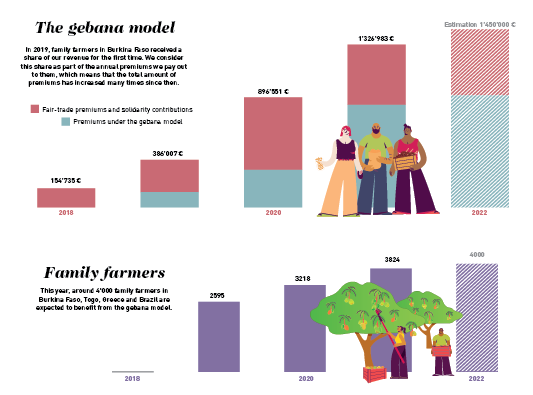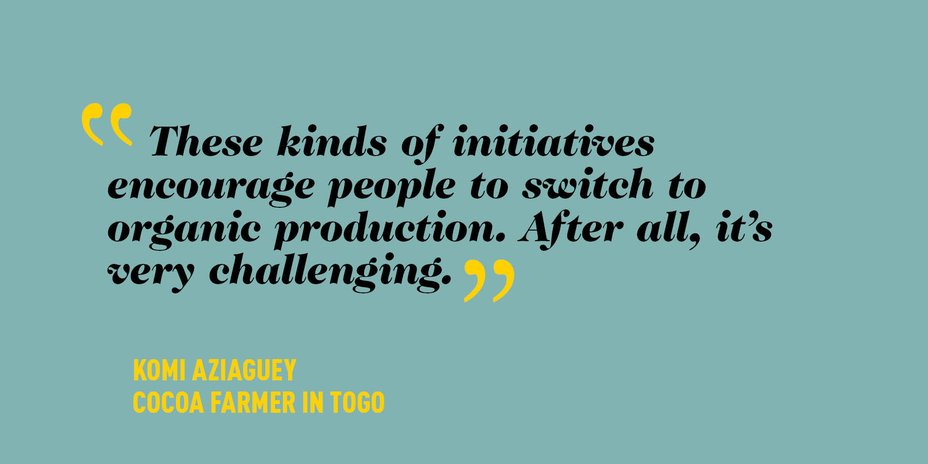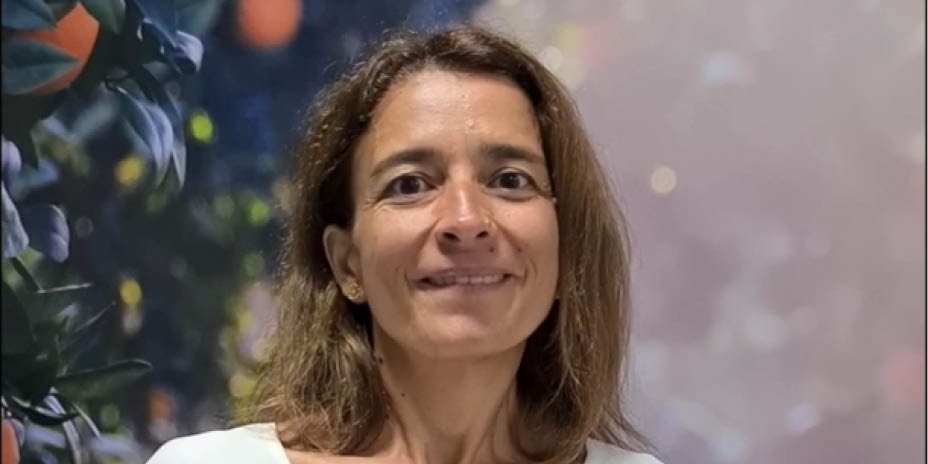How sharing changes reality
Family farmers don't earn enough. As a result, many of them live in poverty. We increase their income by sharing with them what we earn from the sale of their products. As we can now see, the gebana model has brought about real change.

Better relationships with family farmers
"The gebana model has allowed us to create a very transparent relationship with the family farmers and cooperatives that is unlike anything else in the industry. Many people find this relationship strange and unfamiliar, but they appreciate us more and more. However, many of the locals believe that generous people must be lining their pockets through some other means. This is why the producers are sometimes sceptical."
Marjolaine Jan
Head of Agro-Sourcing, gebana Togo
Initial doubts among the locals
There were doubts among the locals even before the first payout in Burkina Faso in 2019. The local team didn't like the idea because they thought it would mean a lot of extra work. Making individual payments to over 2'500 family farmers? It seemed like a mammoth undertaking in a country where hardly anyone has a bank account. Some employees also wondered whether it would be better if the producers invested part of their money in the construction of wells or healthcare stations instead of allowing them to spend it any way they liked. But that's precisely the idea behind our revenue sharing model: Family farmers are entitled to the money and can do with it as they please.
Massive increase in training course participants
"Before we implemented the gebana model in Burkina Faso, there were producers and cooperatives who had never heard of gebana. At the first payout ceremonies in 2019, some producers told us that they didn't see any difference between gebana and other buyers. But now they know that gebana has a different approach and that gebana is concerned for their well-being. This is also evident in the massive number of producers now taking part in our training courses. The family farmers are very pleased. This is also because the payments often come right at the time of the year when they need money to pay for food or school fees for their children."
Ousseni Porgo
Co-CEOgebana Burkina Faso
Payments via mobile phone
When paying thousands of family farmers without bank accounts, cash payments may seem like the only option. But travelling through Burkina Faso or Togo with a lot of cash is not only dangerous, it also invites corruption. The alternative is to transfer the money via mobile phone. Despite initial scepticism, the share of payments processed in this way has risen to between 88 and 96 per cent, depending on the country. The small bonus we pay to those who choose this payment method is definitely an added incentive. We're also working closely with the mobile network operators to ensure that family farmers can ultimately convert their payments into cash.
A sense of occasion
The village communities expect proper ceremonies to be held as a way to highlight the importance of the payment. These ceremonies are like a village festival and sometimes last several hours. In addition to the actual payment, there are also training courses on organic farming and production methods. This keeps the teams in charge quite busy for several months. Greece is the only country where things move a little faster. That's because we work with fewer families here than in countries like Togo or Burkina Faso, so we only need to organise one gathering. We also transfer the money directly to the producers' bank accounts.
Sabotaged by competitors, family farmers stand up for us
Our sharing approach causes resentment among cocoa exporters and middlemen, especially in Togo. They even sabotage us sometimes by bad-mouthing us to the producers, as Marjolaine Jan explains. "They claim that we make all kinds of promises and never keep them in the end." But the producers refuse to be intimidated any longer. Instead, they ask: "Why don't you just do it like gebana?"
Three times more in Greece
In Greece, we work with a handful of families whose products we sell exclusively through direct shipping. As a result, the earnings per family are a lot higher than in Togo or Burkina Faso. On average, they earn around three times as much as they would if they were supplying the retail sector.
Latest member of the gebana model
In October of this year, we shared our revenue with around 200 family farmers and indigenous collectors in Brazil for the first time. They work with the Coopavam cooperative and supply us with Brazil nuts. They received around €15'000 in total.
What do we want to achieve in the future?
We are now focusing on developing and expanding the gebana model. Our aim is to increase the share of our total sales under the gebana model – currently 45 per cent – to about 60 per cent by 2025. This can only be achieved if we add more products to the model. We can't say with any certainty which product will be next since many different factors will affect this decision. Dates from Tunisia, hazelnuts from Georgia, dried pineapple from Togo and mountain figs from Turkey are good candidates at the moment. We'll keep you informed. For our cocoa from Togo, we also want to bring wholesalers on board. Only then will we be able to increase the payouts in Togo, as 90 per cent of our cocoa is sold to wholesale customers.
Purchase price, sales price – what's the difference?
Family farmers who benefit from the gebana model receive their money in two stages. The first stage is when they sell us their products. At this stage, we pay them the market price, including an organic premium – this is our purchase price. On top of that, the cooperative receives a Fairtrade premium, provided that it is certified. Stage two is the actual sharing, and that begins after you as a customer purchase a product from us and pay our sales price. We take 10 per cent of this sales price and distribute it once a year to the producers. We always include all family farmers that supply a product.

 Login
Login





